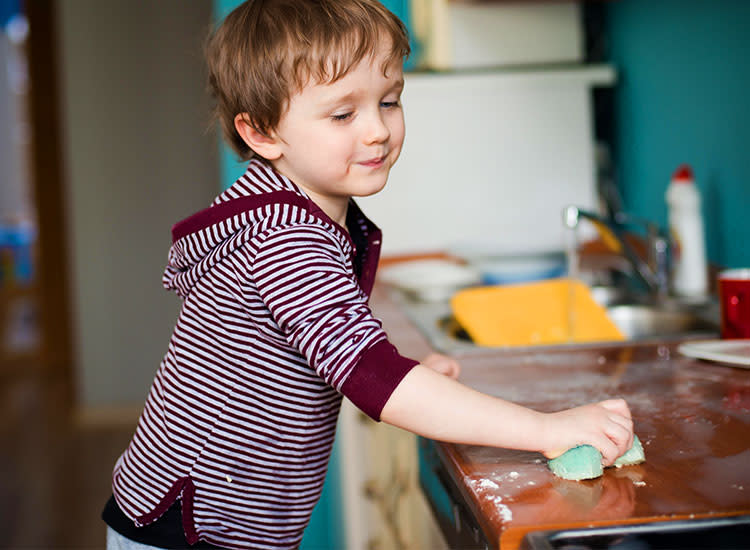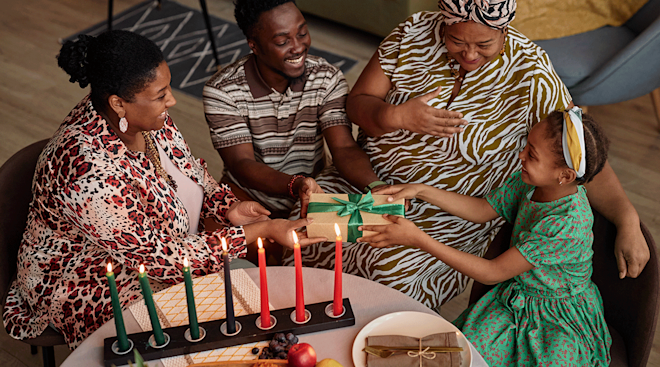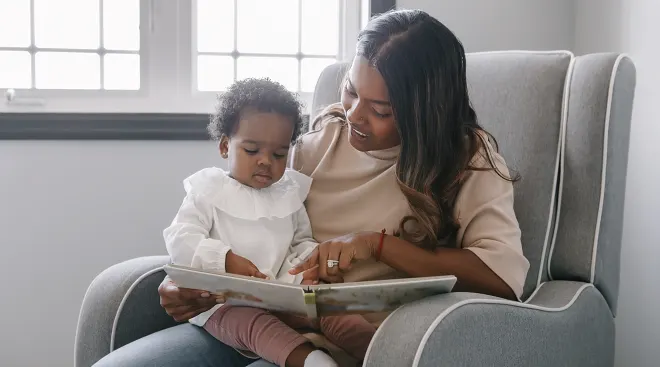How to Identify Your Child’s Love Language
Don’t you wish your kids could understand just how much you love them? As parents, we know that even though our children sometimes drive us crazy, we love them unconditionally. But do they know that?
Every child wants a specific blend of attention and affection from their loved ones. Gary Chapman, PhD, who is best known for his bestselling book, The 5 Love Languages, has a theory that all people express and feel love in the same five ways: Acts of service, gifts, physical touch, quality time and words of affirmation. Each of these expressions of love constitutes a different “language.”
A child’s love language can be identified through observing how they express affection to you and other loved ones. Oftentimes, how they express their love to you is how they want to be loved too! For example, a child that says “I love you” all day and seemingly out of nowhere may be showing you that words of affirmation are their love language of choice. By utilizing the love language your child best responds to, you can make sure they’re emotionally satisfied.
Ready to decode your child’s love language? Here’s what to look for:
Physical touch: Cuddles and kisses
One of the first love languages children can express preference over is physical touch. Most babies love nothing more than to be showered in hugs and kisses. We can often get their first smiles and laughs during this time. Extra snuggles on the couch or a high five can do the trick to reinforce a feeling of love to older children whose love language is physical touch.
While one child may thrive from physical attention, others may not be comfortable with affection expressed through touch. This can ring especially true among children with special needs. As a parent, it’s important to be patient and not impose your own love language on your children because it may result in the opposite of your desired outcome.
Words of affirmation: Loving words or praise
Saying loving things or offering praise will be most appreciated by a child whose love language is “words of affirmation.” A special note in their lunchbox or verbal enthusiasm about a job well done can really make your little one feel special. It’s also important to remember to get down to their eye level when communicating these affirmations to have the greatest impact.
Acts of service: Chores without complaint
Some older children will show their affection through participation in chores or family activities. This can be expressed in doing chores without being asked to do so, like putting away the dishes or walking the dog. They may be unaware that what they’re doing is actually a gesture of love and thoughtfulness to other members of the family. Still, when children do these things proactively, parents should acknowledge the effort and offer positive reinforcement through words of affection and appreciation.
Kids whose love language is “acts of service” appreciate it when their parents do even the smallest of tasks for them: Making them a meal they’ve been craving is considered an act of love. It may be as simple as fixing a broken Lego tower or helping them get dressed. If this is your child’s love language, you might worry that you’re not fostering skills of independence. But walking them through a process can help them build the confidence they need to do something without your assistance next time.
Gifts: Special surprises
What child doesn’t love receiving gifts? While most kids can’t wait to rip open a present on their birthday, some children feel especially loved when they receive a thoughtful gift from a parent, or if they get to spend time with you picking out something special for a sibling for a holiday. And while none of us really need another plastic toy cluttering up the house, children whose love language is “gifts” can feel thought of and cared for simply by receiving a flower from the yard or a handwritten note in their lunch box. A small, meaningful gesture can make kids feel loved.
Quality Time: Distraction-free time together
Quality time with a parent or caregiver is something that kids relish. They may enjoy getting to stay up later than their little sibling or going on a special outing. It can be as simple as having a morning dance party while cooking breakfast or singing a favorite song together. Setting aside time every week for children whose love language is “quality time” helps build trust and enables you to create a deeper and more meaningful bond.
Establishing continual connections with your children is the key to fostering strong relationships. By looking out for the signs above and identifying your child’s love language, you’ll be able to have an even deeper, more meaningful and ongoing connection with your child.
About Lingokids: Lingokids is a playlearning™ app in English for children 2 to 8 years old with over 25 million registered families. The app’s method enables children to expand their vocabulary, improve their literacy and develop important skills in a fun and safe environment. Lingokids has more than 600 learning activities and songs, as well as activities that foster skills like creativity, communication, collaboration and critical thinking.
Plus, more from The Bump:
Navigate forward to interact with the calendar and select a date. Press the question mark key to get the keyboard shortcuts for changing dates.






















































